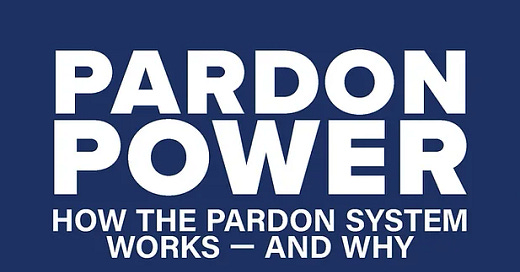No, the pardon power is not absolute
A federal court just recognized a limit on the president’s pardon power
Trump has been on a pardon spree. When he first took office, he granted pardons to over 1,500 individuals who were criminally charged for their involvement in the January 6th insurrection. As he said in 2017, he believes his pardon power is “complete.”
This idea was shared amongst several other presidents. President Dwight Eisenhower’s pardon attorney claimed that in exercising the power, “the President is amenable only to the dictates of his own conscience.” President Woodrow Wilson’s attorney general and President Bill Clinton’s pardon attorney made similar remarks as well. But as a court said last week, the pardon power cannot be completely unchecked, especially when it contradicts other provisions in the Constitution.
This newsletter unpacks the law in plain language. Please share it widely — and if you can, consider upgrading to paid.
I’m immensely grateful for your support!
One of the individuals who received a pardon was John Sullivan, who sold video footage of the riot and made $63,000 in profits. According to the judge, on January 6, 2021, Sullivan “cynically and falsely portrayed himself as a journalist” and “used the riots as an opportunity for personal profit, manipulating other rioters for his own gain.”
Keep reading with a 7-day free trial
Subscribe to Simple Politics with Kim Wehle to keep reading this post and get 7 days of free access to the full post archives.



